By guest contributor Celina Hübner
Since the end of World War II, “never again” has been a guiding social imperative that all school kids in Germany grow up with. It is considered a cultural norm so deeply embedded in society that it unifies Germans irrespective of their political, social, or economic background.
The recent rise in right-wing terrorist attacks has shattered the country’s belief that “never again” is more than a symbolic promise. Having gone through an extensive period of denazification, Germany was largely considered a success story in eradicating violent right-wing extremism. Now, it seems this is not quite true.
Last month’s right-wing mass shootings in Hanau that left 10 dead; the murder of local German politician Walter Lübcke who had spoken out in favor of refugee protection; the attempted Synagogue shootings on Yom Kippur in Halle; the revelation that multiple right-wing networks, including the militant neo-Nazi organization Combat 18 and the so-called Group S, were planning additional terrorist attacks—these are just a few of the most recent examples of right-wing violence. The full list is very long.
The chances of being affected by a violent far-right incident are three times higher in Germany than in other European countries. Since German reunification, there have been at least 208 documented killings by right-wing terrorists, but the actual number is likely to be much higher.
Multiple German politicians have underscored that right-wing extremism poses Germany’s biggest security threat and have enacted police reforms in response to recent attacks. But the structural drivers of right-wing extremism are far more complex and deeply interwoven within the country’s social fabric, its bureaucratic institutions, and the current political climate. Three points are particularly noteworthy.
First, Germany has always had a problem on the right, but its dimensions have been consistently downplayed, and in some cases trivialized as an East German phenomenon. The numerous violent attacks against asylum houses in the 1990s, and the murder series of the National Socialist Underground (NSU), a neo-Nazi group responsible for the killing of 9 immigrants and countless attempted murders from 2000-2007, are evidence of this. Although left-wing extremism was long considered the biggest threat (especially the Red Army Faction), recent counter-terrorism efforts have focused primarily on Islamic extremists and foreign terrorist groups. Yet, Germany’s domestic intelligence agency (Verfassungsschutz) estimates that 32,000 individuals are currently affiliated with right-wing extremism in Germany, 13,000 of whom (40 percent) are considered violent. And these numbers are rising.
Second, state authorities responsible for countering far-right extremism have failed to recognize the organizational structures behind right-wing attacks. Most often, right-wing terrorists are described as lone-wolves, individual lunatics, or psychopaths, rather than as part of organized criminal networks that have expanded for years. The NSU murder series were in part the result of the failure of German bureaucracies to systematically investigate and connect incidences of far-right killings.
Not only have security agencies neglected far-right networks, in a significant number of cases, they have been infiltrated by them. According to official counts, since 2012, at least 57 cases of right-wing extremism were recorded within the federal police alone. Over the last four years, the Military Counterintelligence Service investigated more than 200 cases of right-wing extremism within the German military. One of the most prominent cases—an army lieutenant who was arrested in 2017 for planning an attack against high-ranking state officials after registering as a Syrian refugee—led to a public outcry. But it was only last December that the Ministry of the Interior announced that it would install a central office against right-wing extremism inside the public service. To many, it came far too late in a country with a historical duty to ensure that right-wing ideology and violence do not thrive.
Third, Germany’s political climate in the aftermath of the 2015 refugee crisis has created a conducive environment for populist parties to uplift right-wing extremism. The success of the Alternative for Germany (AfD), a right-wing populist party that began as an anti-European movement, and then rebranded itself as an anti-immigrant party, is emblematic of this. Since 2015, the AfD has gained seats in all 16 state parliaments, it forms the largest opposition party in the German Bundestag, and was voted into the European Parliament. The 2018 right-wing riots in Chemnitz, which were sparked after a man was stabbed by two immigrants, show how effective the AfD and other right-wing organizations are at mobilizing supporters.
While the AfD’s leadership denies the party’s extreme right-wing affiliation, members of the AfD’s radical faction Flügel (English: wing) regularly participate in demonstrations of the far-right movement Pegida (Patriotic Europeans Against the Islamization of the Occident) and issue far-right, in part fascist statements. Moderate AfD members often qualify such statements shortly after, in a strategy to appeal to a wide spectrum of right-leaning voters by distorting the boundaries of what is tolerable. This behavior has contributed to normalizing radical ideologies and emboldened far-right extremists, leading to an increase in right-wing offenses.
Last week’s decision by the AfD’s radical Flügel to dissolve itself came shortly after the German domestic intelligence agency had designated it an extremist entity threatening democracy. While the dissolution is an important step in countering radical right-wing networks, analysts emphasize that the wing’s members could expand their influence by merging with the core party. Ironically, this happened shortly after the AfD’s leadership declared the Flügel to be an integral part of the party. Unless the AfD excludes its radical members, it is likely that intelligence surveillance will soon monitor the entire party.
The Council on Foreign Relations identified far-right extremism as one of the top conflicts to watch in 2020. While some argue this is the price Germany has to pay for not closing its borders to more than 1.5 million refugees since 2015, it’s a problem that extends beyond Germany: representatives of nationalist parties hold seats in 19 European countries. Globally, populist parties and right-wing extremism are on the rise. The terrorist attacks in Oslo, Christchurch, El Paso, Halle and Hanau—none of these cases can be viewed in isolation, all were linked through online right-wing networks.
Is the increase in right-wing terrorism in Germany just a reflection of a global trend? No, the German case is different. A country that is responsible for the murder of 6 million Jews has to have a zero-tolerance policy when it comes to violent right-wing extremism. Right-wing terrorism in Germany is not driven by lone wolves; it has structural drivers, which have created a breeding ground for far-right extremism to take hold and expand. Even if a large majority of Germans strongly opposes right-wing radicalism, as recent protests show, zero tolerance means every case is one too many.
Celina Hübner is a Visiting Fellow at the Department of Government at Harvard University and a PhD candidate at Free University (FU) Berlin, specializing in international security policy, intra-state conflicts and non-state armed groups.

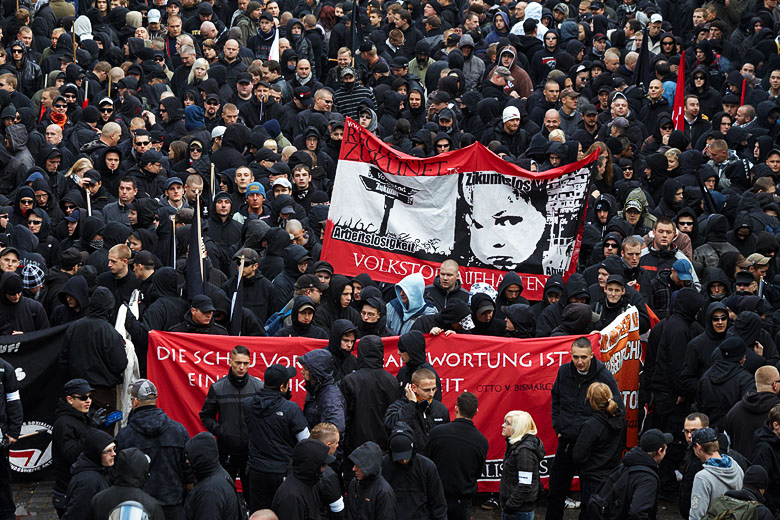
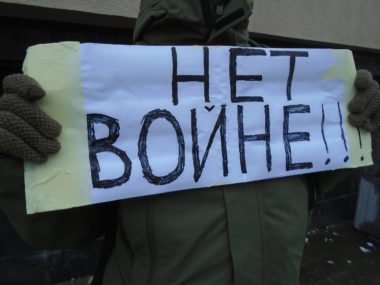

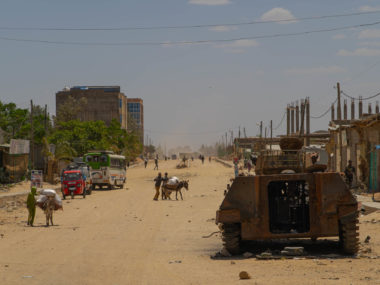
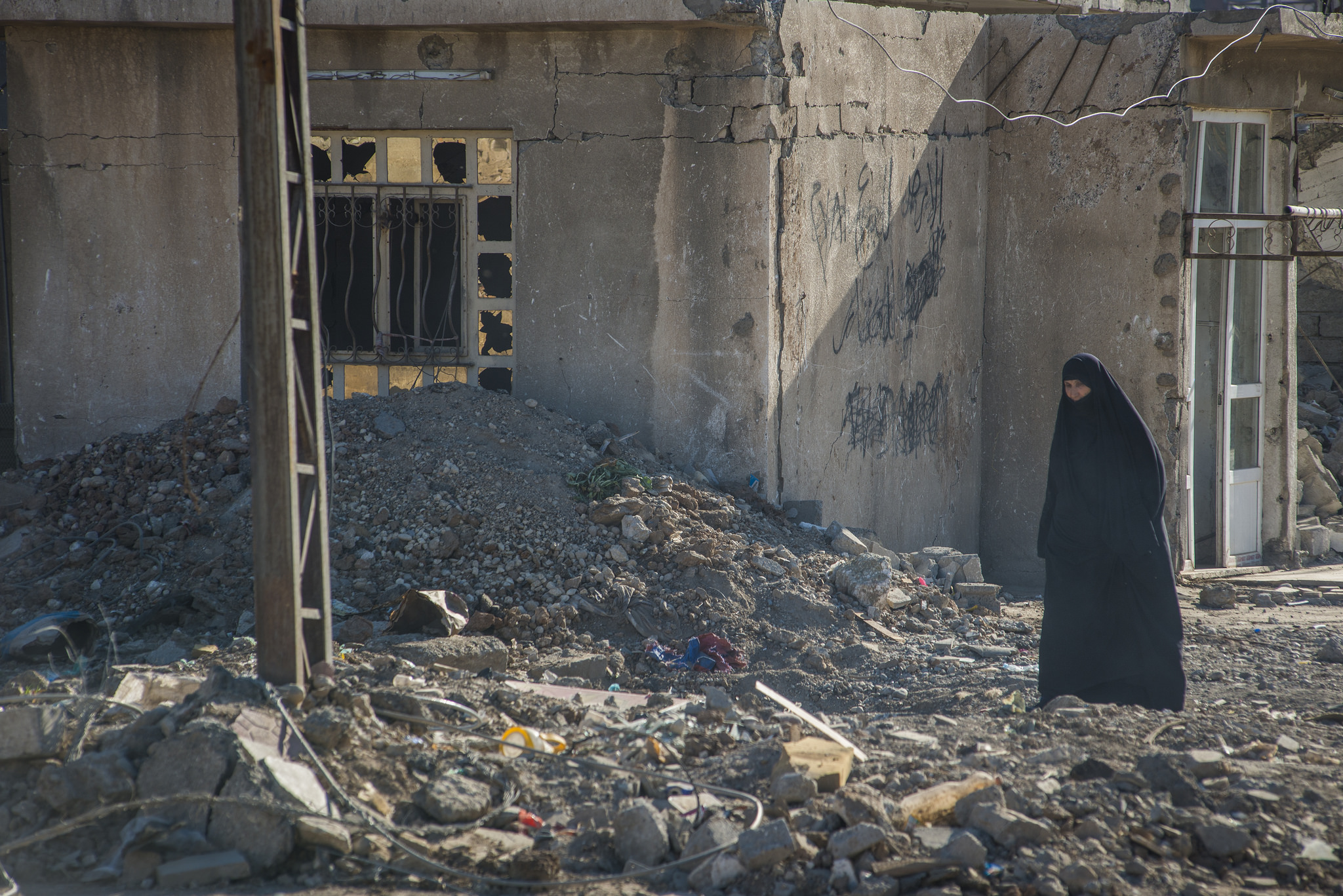
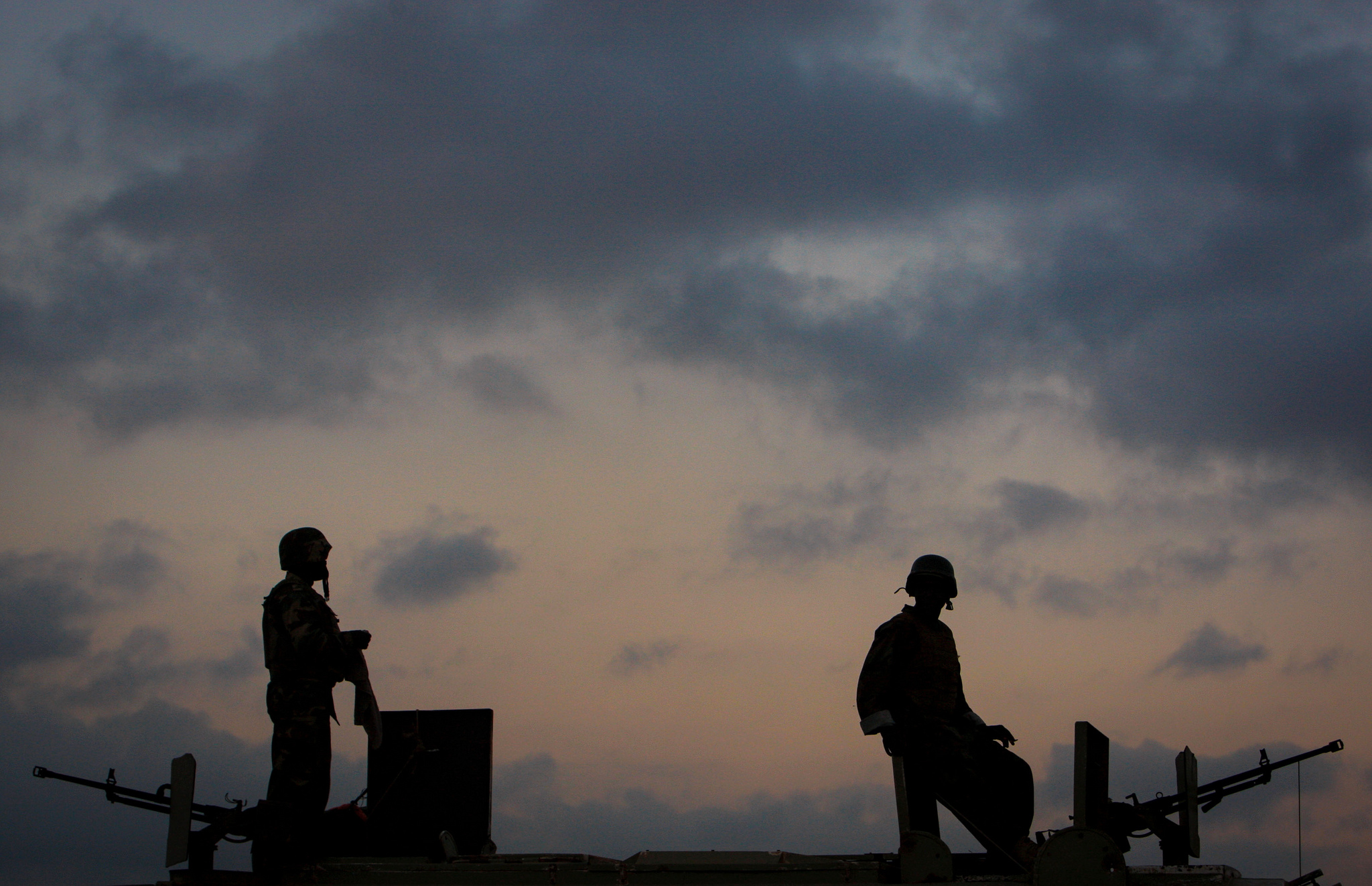

1 comment
“The 2018 right-wing riots in Chemnitz, which were sparked after a man was stabbed by two immigrants (…)”.
To my knowledge there’s no final sentence in this case yet (the defendants lodged an appeal against the decision of the Landgericht). If that’s the case the above sentence is unfortunately reproducing a right-wing view of the events.